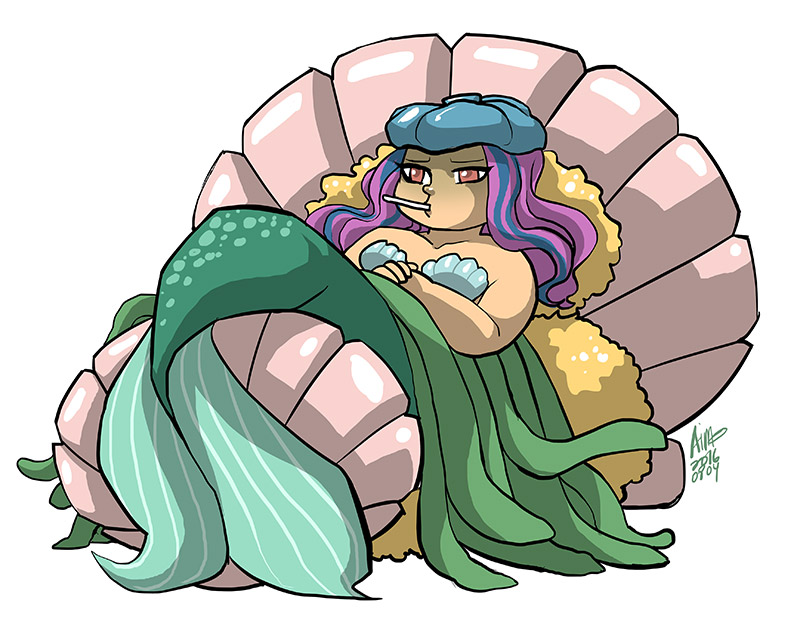 I had an exceptionally low spoon day this past Friday.
I had an exceptionally low spoon day this past Friday.
(If you’re not familiar with the Spoon Theory and chronic illness, you can read up on the whole thing here. Basically it’s a way of measuring energy for those of us with limited amounts.) In general I find myself growing tired more easily than I used to, but it’s rare for me to wake up completely out of gas from the get go.
Not so much on Friday – it’s not even that I was tired so much as that I couldn’t move at all. It’s being completely and utterly drained without even the ability to do much more than sit in a recliner. I had a doctor’s appointment that I had to go to and I could barely manage it. Forget any plans to go back-to-school shopping or writing. By the time I got home, I was done.
I’m not overly surprised about the exhaustion – the last few weeks have been pretty busy getting ready for this next spinal surgery. Lots of stuff to try to finish up for work so I can take time off, getting the house ready for limited mobility (e.g. bending or accidentally stepping on LEGOs or whatever), cleaning for guests to stay with me for the first few weeks, back-t0-school shopping, a multitude of appointments for bloodwork and pre-surgical paperwork.
It’s a lot to handle not counting all the medical issues. (Note: A lot of this post is health related and probably TMI, so feel free to skip if that’s not your thing…)
Which brings me to the mermaid thing. I’ve had mermaids on the brain for a bit – The Little Mermaid in particular. I’ve never made a secret that it’s one of my favorite stories, for a multitude of reasons. I’ve done retellings of it in Fox & Willow, and in Womanthology. I’ve got a third sort of retelling for something else I’m working on though it’s more about the overall themes than any actual mermaids.
But it occurred to me that The Little Mermaid is the ultimate poster child for chronic illness. If you just scratch the surface of it, she pays the price for having legs by having her tongue cut out – which leaves her in the position of having her feet bleed (because it’s like she’s walking on knives) and unable to tell anyone about it. And of course in the story, people notice her feet bleeding, but she dances so prettily that no one seems to suspect how much pain she’s really in. Which feels an awful lot like chronic illness. Even *with* a tongue it’s awful trying to convince people – doctors, family members, coworkers that yes, you really are having problems, because hey, you don’t *look* sick.

On a slightly different note, it feels much deeper than that – for something like a mermaid to have to deal with different atmospheric gravity would be harder than just dealing with sore feet, and I can only imagine her body breaking down over time…much like mine.
Because it starts when you’re 19. I mean, it starts earlier than that when you notice you’re clumsy. Not in any particular fashion – you’re an athlete after all – you’re a runner, a dancer, a horse-back rider, but you invert your ankles a lot. Your knees bend too far. Your kneecaps float out of position. Most of your joints bend too far, really, but that makes sense. You were a mermaid once, supported by water – flexible joints were an asset beneath the sea. You power on, even though by the time you’re 15, you’ve completely snapped a ligament in your left ankle and torn the tendon that runs down the length of your right leg. In separate accidents, even.
When you hit 19, your vagina starts burning. Not for any reason the doctors can figure out. They give you creams, steroids, antibiotics. But mermaids don’t have vaginas, so perhaps it’s only natural that it doesn’t function right. The doctors finally give it a name. Vulvodynia. Tell you might go away. It never does.
By the age of 25, your bladder starts to drop. It spasms all the time. You piss blood. You go to the doctor’s again. They ask if you’ve been sexually assaulted. Insist you’re not having sex enough. Insist it’s all in your mind. Five doctors later, one of them takes a camera and checks it out. You have bleeding ulcers all over the inside of your bladder lining. It’s slowly being destroyed. You go on many different medications with horrible side effects that lead to severe dry mouth and weight gain. But mermaids maybe aren’t used to the foods of man, so maybe it makes sense. The doctor tells you have Interstitial Cystitis and to watch what you eat and drink. It might go away. It never does.
By 35 you’ve had two children. Childbirth was surprisingly easy. Somewhere along the way your back begins to hurt, but you don’t pay it any mind until the day you bend over to change your toddler’s diaper and a disc cracks, leaving you sprawled on the floor for over three hours until your 3-year-old can find a phone and you can call someone. You can barely walk for the next week since the spasms are so bad. By the time you actually get into to see a pain management specialist, the worst of it is over. But mermaids weren’t meant so support all this weight on legs, on land, so maybe it makes sense that your back is starting to break down.
By 37, you’re in constant pain, nerves tweaking down your left leg. You go through injections, PT, MRIs. What’s left of the disc is disintegrating into your spinal column, pressing on the nerve. You consult several surgeons, decide on a procedure to remove that bit of the damaged disc. It’s out-patient and goes well, until 6 weeks later when your vertebrae collapse and the bones are left to grind against each other. The next year is a whirlwind of epidural injections, pain-killers, trigger-point injections, physical therapy. You burn out all the nerves on the left side of your back. You spend 9k of your own money for platelet replacement therapy injections to try to keep your SI joints from constantly dislocating. You do acupuncture. None of it works.
By 39 you’re on a constant dose of painkillers. For over a year. It kills your creative drive. You want nothing more than to curl up in a corner and die. Pain spreads all over your upper back, your limbs. You are tired all the time. You have insomnia, night sweats, and you end up sleeping most of your weekends away. Your brain is in a constant fog. Pain management suggests you see an arthritis doc, and a surgeon for the spine.
The arthritis doc does bloodwork and tests and eventually determines you have Fibromyalgia. She tries you on various medications, most of which have terrible reactions involving your throat not working anymore. Well meaning people insist you should try yoga. Certain family members sneer and determine you are faking it, that Fibromyalgia doesn’t exist. It doesn’t matter how much you talk to them about it, there is nothing they can see to prove it, so you are a liar. Also, back surgery never works, so you got what you deserved.
Your surgeon says you need a double fusion to repair the spinal damage. You agree to it, but before you can set a date, your lower intestine starts to herniate into your vagina. By now, the mermaid in you can only assume your body is supposed be forming back into a tail, but you see a different surgeon who cuts into your perineum and vagina and pushes your guts back where they belong.
The summer passes and you grow weaker. You go off of gluten and it helps some. Mermaids don’t eat bread, so that makes sense. You have your surgery. Now you have screws and rods to keep your bones in place and you finally feel like there’s a light at the end of it all, even if you don’t move as gracefully as you once did. You will never touch your toes again. You see a chiro weekly after you recover. You stay off of gluten. After a while, your arms are going a bit numb off and on, fingers burning. You get an MRI on your neck and discover a couple of bulging discs, but decide it’s not bad enough to do anything about it. Yet.
By 40, you start having problems with acid reflux. You get an endoscopy. You have a hiatal hernia and GERD. You can’t take any more anti-inflammatories. Ever. The doc puts you on several PPI drugs. Most don’t work. One does, but four weeks later you realize your ears are ringing. You now have permanent tinnitus. You go off the meds and try not to eat past 6 PM.
In the spring your periods start getting horrifically painful. More frequent. You go to the doctor and discover you are now anemic from all the blood loss. It feels as though hot pokers are pushing into your guts. You get a pelvic floor MRI and are diagnosed with adenomyosis. You visit your gynecologist and she laughs at you and says the MRI can’t be trusted and you probably can’t handle the pain of a hysterectomy anyway. By this point you feel as though you are in labor 24 hours a day. You find a new doctor and have your uterus, Fallopian tubes and cervix removed. They find massive fibroids, cysts on your ovaries and endometriosis all over your pelvis.
By 41, you’ve gotten a dog, thinking some exercise will help keep you in shape, or at least force you to move. Only your dog needs to be walked a minimum of three miles a day. You get plantar fasciitis, but it’s no big deal. Except it continues to get worse, no matter what you do. You end up on crutches and painkillers. The doc thinks you’re full of shit and just looking for drugs, but you convince him to give you an MRI. You have a cuboid hairline fracture in your left foot. The doc puts you in a boot.
You still take painkillers off and on while you heal, until one day a massive red rash spreads all over the outer edge of one thigh. The dermatologist blows you off and tells you it’s poison ivy, even though you insist you haven’t been outside. The cream they give you doesn’t work and you eventually break out in hives from head to toe. Now they believe it’s a drug allergy. You stop taking painkillers. They take skin samples. They never figure out what it is and a month later it starts to go away on its own.
In the meantime, you start getting nerve twinges down your right leg. Pain streaks all over your lower back again. You begin to twist like you did before your previous surgery, in some random hope that you can relieve the pressure. You get MRIs, CT scans. 4 injections in a month into your spine. Everything burns and you can’t drive for a while. Your neurologist finds new nerve damage on top of the old. Your previous surgeon has passed away from pancreatic cancer, so you try to find others. Many don’t want to talk to you since you’ve already had surgery. Three insist you need another fusion. Another disc has gone bad, your facets joints are rotting away. It will never get better.
So you agree to do it again. You are nearly 42 and by now your feet are cramping up so bad you can’t walk well, and nerve pain ripples down your entire right leg. You’ve been allowed to work from home for six months before you fill out the paperwork to make it permanent. You go back on painkillers for a while, but after four months decide the pain is preferable to being stoned all the time. Depression threatens to consume you. You have almost daily anxiety attacks. What if this new surgery doesn’t work?
In the original tale, the mermaid is faced with a choice. Kill the prince by stabbing him in the heart, or become foam upon the waves. And in the end she chooses to jump off the ship and die. And the thing about chronic illness is every morning is a bit like making that choice. Stab the prince, or jump into the sea and end it.
Only it’s not the prince’s heart you’re stabbing – it’s yours. And maybe you’re not stabbing the whole thing. Maybe you’re just cutting off pieces of it in hopes the sea witch might be pacified. And each bit is a new med to try, a new therapy, a new diet, a new doctor, dropping money on magical Aloe pills from Narnia, whatever – it’s a desperate hope that THIS time, maybe you’ll find something that works. Or hell, even just manage a little less pain.
But cutting into your heart like that changes you. Every time something doesn’t work or you flare or relapse it kills you a little bit. Bitterness, depression, anger, sadness. After a while, some days that’s all that’s left and it affects everything – relationships, work, sleep, creativity. It gets harder and harder to leave the negativity behind, because when pain is your only constant it becomes THE constant. You forget what it’s like to exist without it.
Looking back at this rather tawdry medical history, I’ll admit sometimes I’m surprised I’m still here. There were some times when jumping off that ship presented itself as a tempting option. And I have no idea why things have gone downhill the way they have. The fact that nearly all of it has been from the waist down makes for an easy mermaid explanation, I suppose.
By the time this posts, I’ll be in en route to the hospital in the very wee hours to undergo my 3rd spinal surgery for yet another bad disc, bad facet joints, bad everything. In some ways it was easier making the decision to go in for this one, but on the other…I know exactly what recovery is going to entail, from the catheters, the 60-odd staples, the pain-killers, relearning how to walk. The doc says either my body will remember and decide it’s old hat and maybe I’ll recover faster…or it will decide it won’t be fooled by such shenanigans again and things will take a little longer.
And there are no guarantees. It’s not going to fix me. I’ve got no illusions about that. Nothing will fix me at this point. It’s simply a chance at feeling a little better.
Here’s hoping.
As for the rest of it….keep calm and mermaid on, as they say. 🙂




19 Responses to Chronically Ill Mermaid